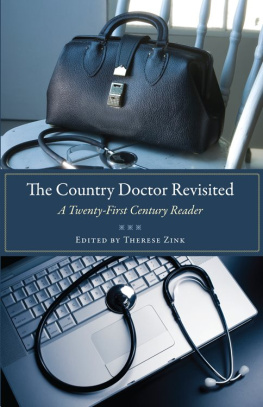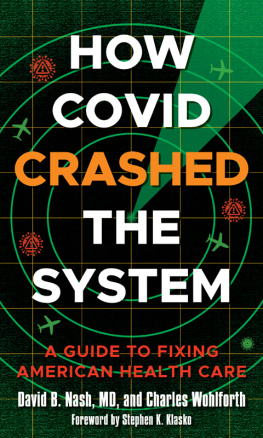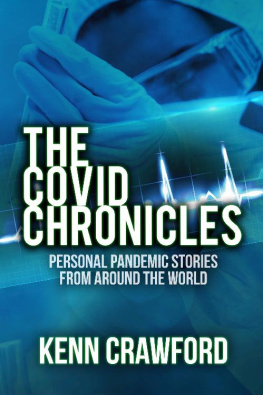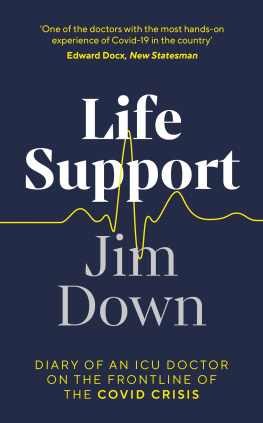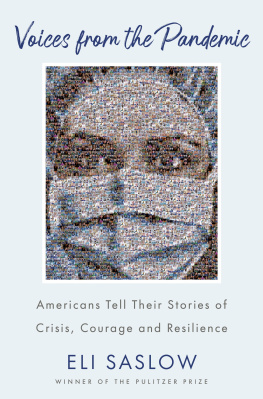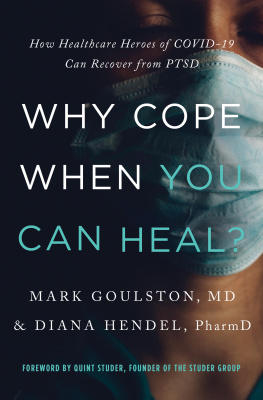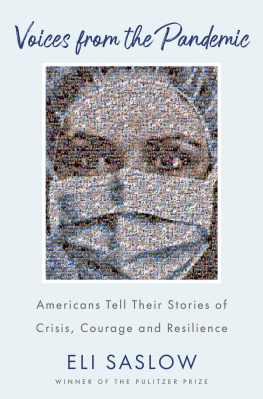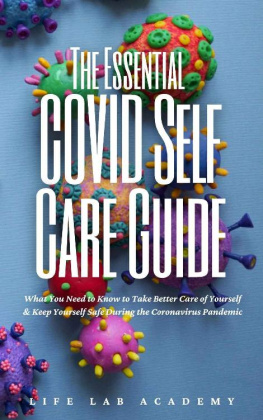ZENTERRAM PRESS
COVID CHRONICLES: How Essential Workers Cope
Therese Zink, MD, MPH
Copyright 2021 Therese Zink
All rights reserved. This book was self-published by the author Therese Zink under Zenterram Press. No part of this book may be reproduced in any form by any means without the express permission of the author. This includes reprints, excerpts, photocopying, recording or any further means of reproducing text.
If you would like to do any of the above, please seek permission first by contacting Therese Zink. www.theresezink.com
Published in the United States by Zenterram Press
ISBN: 978-0-9912651-5-2
Cover Art and design: Reed Pike
All names and identifying characteristics have been altered to preserve anonymity or permission was granted. This is a work of creative nonfiction. In telling the stories of the individuals I interviewed, details may be altered and the timing of events collapsed so the book fits together as a whole and keeps the interest of readers.
COVID Chronicles:
How Essential Workers Cope
Therese Zink, MD, MPH
It is now the very witching time... when churchyard yawn
and hell itself breathing out Contagion to the world
Hamlet, Act 3, Scene 2
Now gird up your loins...
Job 38:3
The miserable have no other medicine, but only Hope.
Measure for Measure, Act 3, Scene 1
DEDICATION
For all who suffered and continue to suffer in the COVID-19 pandemic. For those who cared for and continue to care for the suffering and try to make sense of it all.
Table of Contents
Introduction
The sun warmed my face that spring morning as I walked down the metal staircase, a short cut to avoid busy roads on my way to the University in Nablus, Palestine. Red, yellow, and lavender wild flowers sprang out amid the patches of green grass and piles of trash strewn across the hillside. After winters rain, the desert was in bloom. As the recipient of a Fulbright award, I was a visiting faculty member in February and March 2020, teaching and mentoring at the medical school on the local universitys campus.
A lanky Arab teenager who Id passed other mornings stopped me half way. Coronas here, he said in accented English.
Corona? He couldnt be referring to the Mexican beer. This was a conservative community in the heart of the West Bank, where alcohol was forbidden.
Corona the virus.
Shukran, I thanked him and continued on, smiling to myself. He was likely giving a general warning to the obvious foreigner who walked everywhere. This was not a walking culture, so I stood out without a hijab or dyed gray hair like most women my age.
Id read about the virus cases in China, but this was the first report in the Middle East. When I reached the medical school, everyone knew that a South Korean church group visiting the holy sites had brought it to Bethlehem, and that theyd eaten knafah, a special sweet cheese dessert, in Nablus. It was only a matter of time.
Health officials quarantined the tourists in a Bethlehem hotel while one of the local doctors I worked with collected nasal swab tests from the visitors. She worried about her own exposure to the new virus, COVID-19. Within days, the group of local physicians I was teaching about Family Medicine began training on testing procedures and the proper use of masks and gowns, and some were called in to work extra shifts at the government clinics.
At the time, in the States, Seattle was reporting some cases, but my scan of the New York Times showed little about the new virus beyond the Wuhan epidemic and medical journals focused on the cases in China.
Within the week, Bethlehem locked down, and schools, mosques, and churches across the West Bank closed. Gatherings greater than 50 were prohibited. Foreigners became suspect, taxis refused to give rides, and a group of local teens spit at a black-skinned colleague. Our university host urged us to be careful.
There were no COVID cases in Nablus, so even though the university closed, I secured special permission from the dean to come into the medical school and wrap up projects with faculty. When we learned about a Palestinian physician who abandoned her patient in the exam room because the patient complained of a cough and fever, I helped local researchers launch a study on how doctors and nurses were coping with the new virus. This experience helped those professionals avoid fatigue as numbers grew; it would also prove invaluable to my later work during the pandemic.
A few kids who Id passed many times during my walks through the neighborhood now yelled foreigner at me and giggled. I never felt afraid. However, as airlines out of Tel Aviv started canceling flights, the US embassy suggested we consider leaving. I did.
My flatmate and I packed quickly, arranging to leave several boxes in storage with colleagues at the university. The cleaning staff was delighted to have the labneh, tomatoes, and eggplant that remained in the refrigerator. With two months left in our commitment, we were sure we would return when this was over, with so much work remaining to be done in our Fulbright commitments. When the COVID mess was all over, I thought, Id find myself some Corona beer and Mexican food and figure out how to celebrate. Little did I know.
A few people on the packed plane wore masks and disinfected their seats with alcohol wipes, but I was not one of them. In fact, during the 12-hour flight, I looked askance at those nervous ninnies. At this point, only people from Asia wore masks, probably because of the horrible air pollution in their large cities. There was no scientific evidence that I knew of that reported masks to do anything but make one feel claustrophobiclittle did I know how rapidly my perspective would change.
Arriving at JFK, my connecting flight was too tight to make. I just wanted to get home, so I skipped the flight and caught the train to Rhode Island. COVID hadnt yet shut down New York City, but Penn Station was creepily empty, another warning of what was to come. The Amtrak ride up the coast made for a pleasant reentry. I dozed and watched the sun drenched coastal towns and harbors on the mid-March afternoon, mulling over recent experiences in Palestine: The new virus. The fear and uncertainty of the physicians and nurses. The worries about adequate gowns and masks. The targeting of dark-skinned people and foreigners. The additional challenges of managing as an occupied state where the occupier, Israel, set the rules. Checkpoints were under the control of Israel and closures had affected the route I took to the airport.
Finally, I arrived home after nearly 24 hours en route. I was a month earlier than expected after only six weeks abroad, and little did I know that I was walking into a Michael Crichton pandemic thriller.
The day after I passed through JFK airport, the passport control lines were hours long due to newly implemented health screenings. Some passengers spent over eight hours in line further increasing their exposure to COVID. Although I didnt think I had contracted the virus, I followed advice given by the CDC to foreign travelers and self-quarantined for two weeks.
Soon I was listening to the weekly Rhode Island Department of Health phone calls for physicians and watching National Academy of Medicine podcasts to learn the science about the novel SARS-CoV-2 or COVID-19 virus. My medical career was overshadowed by AIDS in the 1980s and now COVID-19 in 2020. As interns in the 80s, we were always trying to understand the new diseaseAIDS. We instituted universal precautions, using gloves when in contact with body fluids, taking special precautions after needle pricks. At the time, death from HIV was a forgone conclusion for those infected, but over the decades, researchers learned more about the virus and the human immune system. Better tests for monitoring the bodys response and new drugs were developed. HIV has come to be treated as a chronic disease. With COVID the possibility of illness or death began to surface everywhere as part of the job and a constant underlying concern.
Next page

